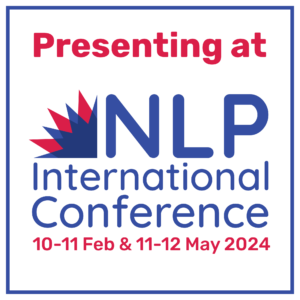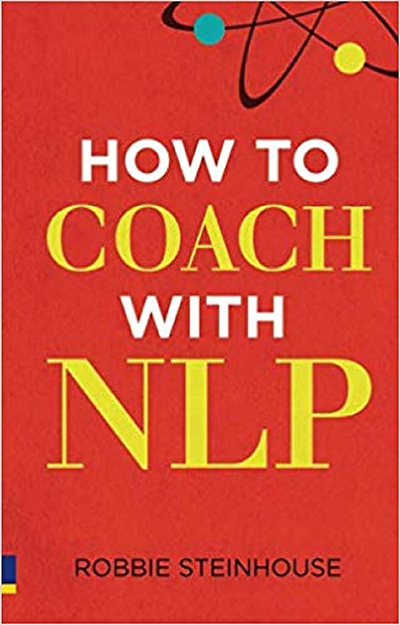NLP Training, The Six Essentials for Choosing The Best NLP Course Provider

NLP Course – reviews and what to look for.
If you are choosing an NLP Training or an NLP Practitioner course you are probably aware that there is a lot out there, and a huge variation in the cost, number of days and method of delivery.
A pre recorded NLP course such as you’ll find on Udemy and the like are all very well and do have their place, however in this post I will focus on what to look for if you are looking for a live training that covers serious in depth change work or, if you are looking to gain a qualification to work in the field.
1. What do past students say about the training?
As ever it is worth reading reviews and finding out what others have said. I have often compared an NLP course to taking a long cruise on a ship – it is well worth finding out if you are getting on board with a bunch of like-minded passengers, with a stable ship’s captain taking a safe and enjoyable route. AT NLP School we are proud that our 70 Google reviews are all 5 star along with detailed reviews.
Please do take a look at NLP School’s reviews by clicking here. Additionally many of our alumni are happy to speak to you about all aspects of our NLP courses, if you would like to connect with a past student please get in touch.
2. What is the ‘source’ of NLP?
It is important to find out from your training provider who is the source of their NLP. There were a number of key players who started and developed NLP during the 1970s around the campus of The University of California Santa Cruz (UCSC). I trained with many of these ‘key players’ and found that Robert Dilts’ and Judith Delozier’s NLP University (still based on the UCSC campus) fitted the best with my approach and values. Their training included the original NLP concepts that they helped develop and have gone on to include many new developments which I found even more powerful. Robert’s Logical Levels, The Hero’s Journey, Reimprinting and The Disney Process are to me the greatest hits of NLP (along with many more). If you are wondering which course to do, I would check out specifically what the syllabus includes, just like buying a ‘greatest hits’ album.
3. How much time is given to practice?
This to me is probably the most important question. At NLP School the training is structured in the following way: a brief lecture on a ‘coaching style’ technique; the trainer then demonstrates this technique with a member of the audience and the students then form into groups of two and repeat the technique on each other. With twenty years of NLP under my belt I am entirely convinced that it is these ‘individual style’ sessions that are the most impactful in the training: you effectively give and receive powerful change processes and become proficient at doing NLP. We allow between twenty to ninety minutes practice time per round, depending on the complexity of the technique.
4. How is NLP taught?
The schools that the key players in NLP created also matched the personality and values of those players. Robert Dilts said, “I judge my competence as a teacher, by how capable my students are after the training.” This approach best fitted with me, along with his humility. When I studied with Robert, I found it refreshing that he didn’t react to my challenging questions defensively – he actually seemed to welcome them. I like a trainer who doesn’t take themselves too seriously. This helps create an atmosphere where people are not deferential towards the trainer and a relaxed and inquisitive atmosphere is encouraged. I also like a ‘coaching approach’ to NLP where the client is treated gently, respectfully and has a sense of genuine caring. I find this approach more effective and empowering – it feels more like two equals in a team working collaboratively to help resolve an issue.
5. What are the things I need to look for in an NLP institute?
- Find out who will be actually conducting the training. At NLP University in Santa Cruz, there are a range highly regarded trainers such as Robert Dilts, Judith Delozier, Tim and Kris Hallbom, Suzi Smith, Judith Lowe and myself. At NLP School in London, I conduct all of the training.
- That they teach influencing with integrity. It is certainly a good idea to become better at reading people and more proficient at communications. However, people are smart, and it is important that your NLP enhances your communication so your message remains genuine and authentic. As Stephen Covey said, “Who you are is far more important than what you do.”
- That they encourage people to take ownership of their own learning. Leadership begins with yourself. It is important to find mentors and teachers throughout different phases of life. The best teachers encourage their students to work out how they learn best and then to serve them upon that journey.
- That the distinction between personal development and healing is made clear. NLP is transformational, but it also requires a significant personal effort to learn and apply – it is best learnt as a skill set to help others and gain an understanding of human psychology. If you get transformed on the way, then all the better, but it is not a substitute for therapy.
6. Attending an NLP Course live online versus learning NLP in person
Since lockdown, training online has become more the norm and offers a convenient way of attending NLP courses without the time or financial investment in travel or accommodation. At NLP School all of our live NLP trainings are hybrid, giving you the flexibility to choose whether to attend in person or live online. We have made significant investments in technology, including multiple professional cameras and sound equipment, additionally we have an online resource team and we employ a dedicated engineer for the full duration of the training to make sure that attending live online is just as good and effective as the in person experience.
A significant part of the experience of an NLP course is the sense of community, meeting and connecting with your fellow delegates and it’s this interactivity and connection that I’d recommend checking if you are considering a live online course.
Our online delegates can interact with the trainer the other delegates, including the in person ones, fully participate in demos, ask questions and are just as connected as the in person delegates. Many of them have gone on to form deep friendships and continue to meet both online and in person long after the training has finished. If the online course you are looking at offers all of the above then ultimately the difference is in how do you like to learn? Quite simply some people prefer being physically present in person, others prefer the focus and convenience of being online. AT NLP School we offer both.
Did you like this post?
Then check out our events and courses!
Sign up for our e-learning course
Where to find us
For posts, events, free open days and more, follow NLP School on:
What to read next
Becoming a Leader: From Specialist to Generalist
Content and Process: The Essence of NLP Coaching










